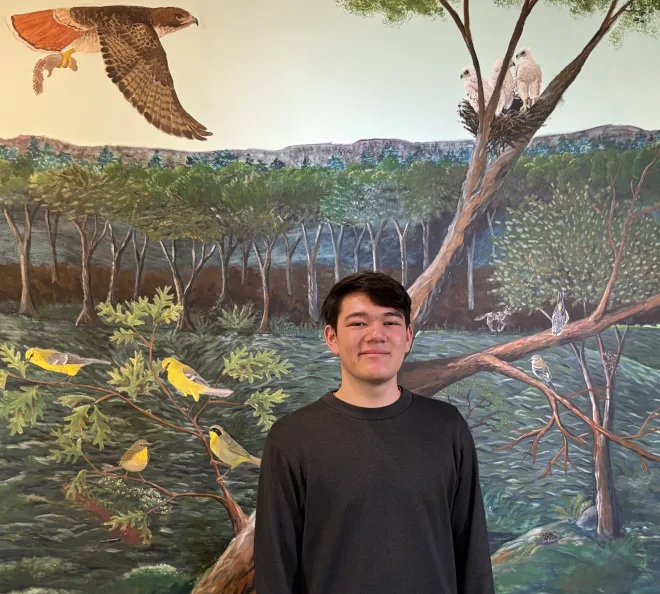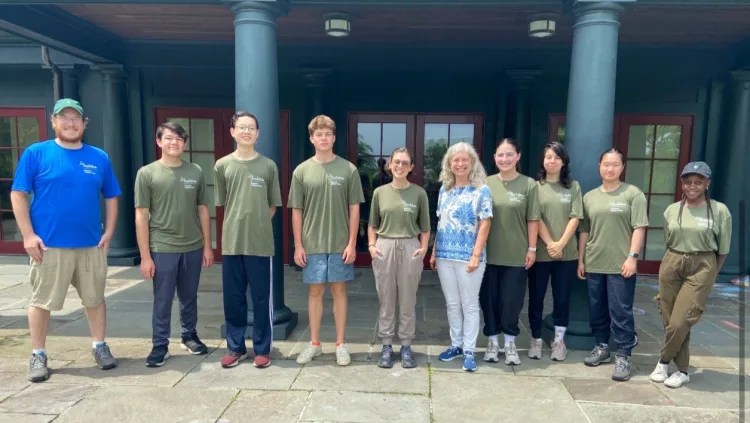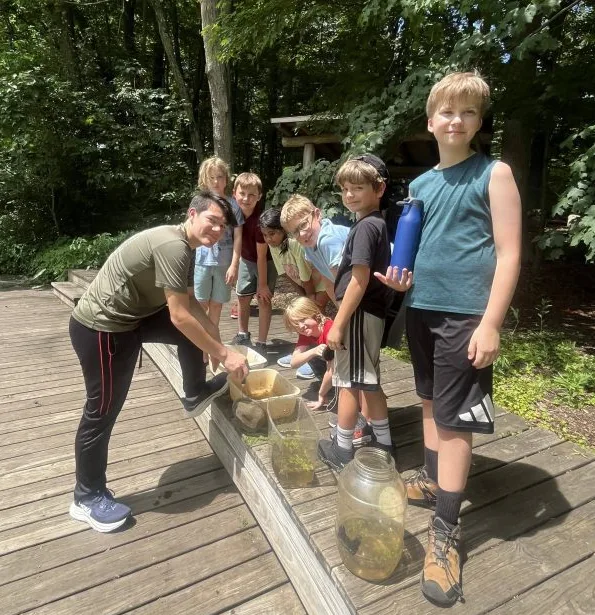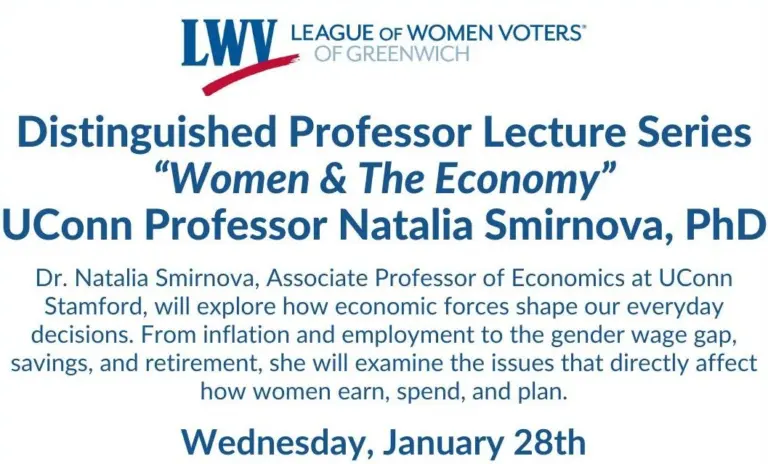
By Anne W. Semmes
From the age of five, Jack Siders, now seventeen, has been a nature lover. Seeing his fascination with animals from watching a PBS show, “Wild Kratts,” his mom thought to enlist him in Greenwich Audubon’s summer camp. “I came here one year, and I just couldn’t leave,” he tells. Note that Siders’ family lives in Stamford. But “Every summer I would come back and there was a little joke between some of my buddies here that I was born here.”
Siders would become a volunteer and “feed all the animals,” in the days Audubon “accepted rescues.” He moved on to the then Teen Board. “We designed the turtle’s terrarium for that so-old turtle.” He became a CIT, a counselor-in-training/ “We do a lot of activities down at the pond here. We do pond scooping so they can learn about all the ecology and the freshwater. Same with the rivet. They love the river catching all the crayfish. And we get to use those spaces to teach them not only how important preserving spots like those are, but also just how amazing mature really is.”
Advancing to Eco-Leader, he had outreach success addressing the climate subject with campers. “I want them to have deep care and understanding for it because when they grow up… I want them to make climate-safe choices. I want them to be game changers.”
So, it was at an Audubon event last year that Siders was first alerted to the challenges of Connecticut farmers. He tells, “A representative of Connecticut was handing out flyers for ‘Lights Out Greenwich’ [on the negative effects of light pollution] but also mentioned how Connecticut farmers get tax benefits, tax incentives.” Siders put that thought aside. He was busy in high school at the Hopkins School in New Haven.
But last December Siders came across a newspaper story “about this big CT Farm Bill that farmers were going to get…That’s when I realized I have no idea what they’re talking about…how are farmers going to understand a lot of this? Because it is not really in lay people English.” Sider would do some research in January during his school year. “It was pretty slow because I live an hour and a half away from my school. I didn’t have that much time.” But by July with that CT Tax Bill now a reality Siders had put its “tax incentives and grants into terms that would be easy and quick for farmers to understand,” and he would spell it out in a flyer, entitled, “TaxCoop.” “That’s when we really started outreaching to farmers and organizations.”

Siders focus on small farmers of Connecticut
He would build a listing and location of some 69 small farmers’ markets across the state of Connecticut. “So, the plan is,” he says, “to actually take these flyers to farmers’ markets and hand them out.” But he notes, “I’m only one person and I think that organizations are stronger when there’s an organized group of people. So, currently I’m focusing on recruiting people.”
And he’s aware those farmers’ market season will be ending in November.
Now a senior at the Hopkins School Siders is taking an AP course on Environmental Science, having “learned so much about environmental sciences at Audubon” that his class is “all review.” He notes how “fortunately the Hopkins School has children from all over the state, so, my school is a great place to be recruiting fellow students to go to their farmers’ markets.”
At Audubon’s Hawk Watch last Saturday Siders, now a Teacher Naturalist, was overseeing “a great migration game,” so created by Ryan Maclean, Senior Coordinator of Education, who had introduced him to “how amazing birds are.” That migration game he notes “is meant to highlight how difficult migration is for birds, especially now with so much human infrastructure everywhere. But the kids love it.”
Beyond the challenge of Siders’ recruiting people to deliver his TaxCoop informative flyer to small farmers is the need to keep his flyer updated, “because the government is changing a lot of the information in this flyer.” Per example, on reaching out to Chris Laughton, the director of Knowledge Exchange at Farm Credit East, in Enfield, CT, Siders was alerted that “one of the things in the flyer was outdated, and it only happened two days ago.”
Thus, the impetus began for Siders to design a TaxCoop website, where he can “constantly update this information…as much information as they [small farmers] need.” And “They could search for specific keywords that they need.”
Add importantly Siders’ newfound help in collaborating with Coordinator Ella Kennen of the New Connecticut Farmer Alliance (NCTFA), “to develop a more detailed tax manual on tax incentives, a sort of step-by-step that farmers can follow,” he tells. “Ms. Kennen works with over 700 farmers in her network, and she has been sharing my flyer.” That manual he hopes will be posted on his website and distributed “later in the fall.”
“There so many benefits that these small farmers might be missing out on, and a lot of these are related to sustainable farming,” he tells, “which is probably the most important part of this flyer, because climate change is becoming more and more of a very real problem today… And I think that starting small is the best place for me to begin. So that’s why I’ve been mostly focused on small farmers markets instead of large-scale farms. I think that’s where I can make the most change.”
Postscript: As of Tuesday morning, Jack Siders had created and published his new TaxCoop website: www.taxcoopusa.org





